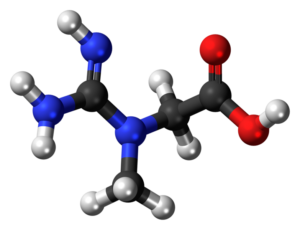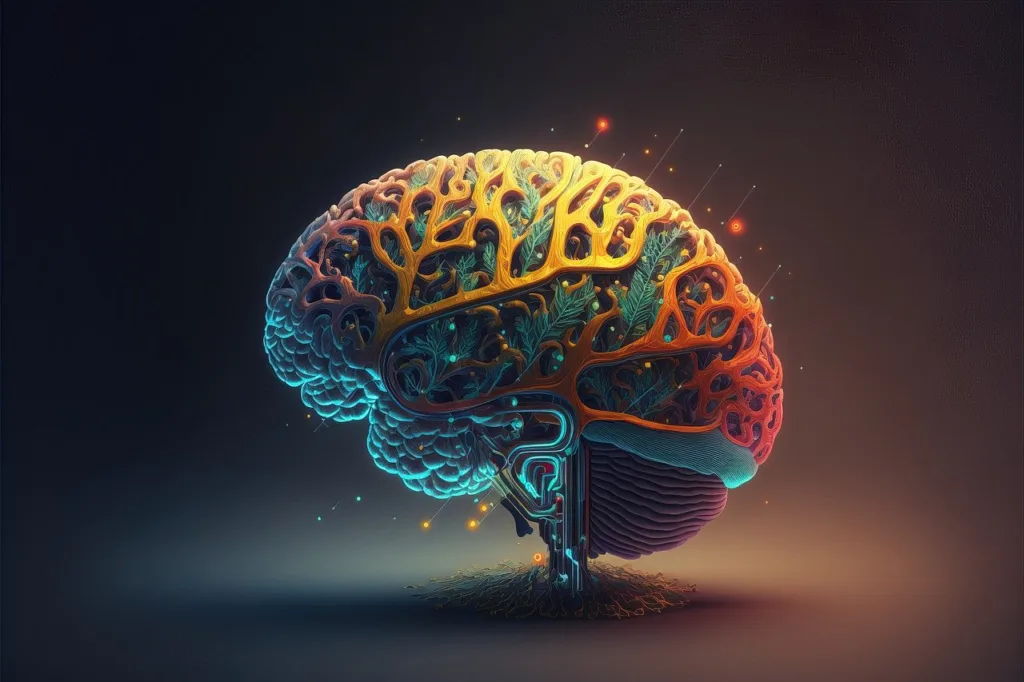Understanding Creatine
Creatine is a naturally occurring compound that plays a vital role in energy metabolism. It is best known for its performance-enhancing benefits in athletes, particularly in increasing strength and power. However, recent research has unveiled the remarkable effects of creatine on brain function and cognition, extending its benefits beyond the athletic realm. This article explores the untapped potential of creatine in optimizing brain performance.
The Science Behind Creatine
To comprehend the impact of creatine on brain function, it is essential to understand the science behind it. Creatine is synthesized in the body from amino acids, primarily in the liver, kidneys, and pancreas. It is then transported through the bloodstream and taken up by cells, including neurons, where it is converted into phosphocreatine.
Creatine for Enhanced Cognitive Function
The Role of ATP in Brain Function
Adenosine triphosphate (ATP) is the primary source of cellular energy. The brain, being an energy-demanding organ, relies heavily on ATP for its proper functioning. ATP fuels numerous processes, including neurotransmission, synaptic plasticity, and neuronal signaling.
Creatine and ATP Synthesis
Creatine plays a crucial role in ATP synthesis, serving as a readily available reservoir of high-energy phosphate groups. By increasing intracellular phosphocreatine levels, creatine supplementation enhances ATP regeneration, facilitating the brain’s energy requirements.
Memory and Learning Benefits
Studies have shown that creatine supplementation can improve memory and cognitive performance. It has been particularly effective in tasks involving short-term memory, working memory, and information processing speed. Creatine may enhance cognitive performance in stressful situations, benefiting individuals facing mental fatigue.
Neuroprotective Properties of Creatine

Oxidative Stress and Neurodegenerative Diseases
Oxidative stress, resulting from an imbalance between free radicals and antioxidants, plays a significant role in neurodegenerative diseases like Alzheimer’s and Parkinson’s. The brain’s high metabolic activity makes it particularly susceptible to oxidative damage.
Creatine as an Antioxidant
Creatine exhibits potent antioxidant properties, helping to neutralize free radicals and reduce oxidative stress. By doing so, it may exert protective effects against neurodegenerative conditions and promote brain health.
Implications for Neurological Disorders
Emerging research suggests that creatine supplementation may have therapeutic potential in various neurological disorders, including Huntington’s disease, amyotrophic lateral sclerosis (ALS), and major depressive disorder. While further investigations are needed, these findings indicate the exciting possibilities of creatine as an adjunctive treatment option.
Creatine and Mental Fatigue
Mitigating Mental Exhaustion
Prolonged mental exertion often leads to fatigue, diminishing cognitive performance and impairing decision-making abilities. Creatine has shown promise in mitigating mental exhaustion, promoting mental resilience, and sustaining optimal cognitive function, even during demanding tasks.
Enhanced Mental Energy and Focus
Creatine supplementation has been linked to increased mental energy levels, allowing individuals to stay focused and attentive for more extended periods. This effect can be particularly beneficial for professionals, students, and anyone seeking to enhance their productivity and mental clarity.
Creatine Supplementation for Non-Athletes

Benefits for Vegetarians and Vegans
Vegetarian and vegan diets often lack natural dietary sources of creatine, predominantly found in animal products. Consequently, individuals following these dietary patterns may experience suboptimal creatine levels. Creatine supplementation can bridge this gap, providing the necessary benefits for cognitive function and overall well-being.
Age-Related Cognitive Decline
As we age, cognitive decline becomes a common concern. However, research suggests that creatine supplementation may offer protective effects against age-related cognitive impairment, supporting healthy brain aging and preserving cognitive abilities.
Stress Management and Mood Enhancement
Creatine’s role in brain energy metabolism extends to its impact on mood regulation. By optimizing ATP levels, creatine supplementation has been associated with reduced fatigue, improved mood, and increased resilience to stress.
Potential Risks and Side Effects of Creatine Use
While generally considered safe and well-tolerated, it is important to be aware of potential risks and side effects associated with creatine use. These may include gastrointestinal distress, muscle cramps, and, in rare cases, kidney or liver complications. As with any dietary supplement, it is recommended to consult with a healthcare professional before starting creatine supplementation.
Conclusion
Creatine, once predominantly known for its performance-enhancing benefits in athletes, has emerged as a promising tool for optimizing brain performance. Its role in ATP synthesis, neuroprotection, and mitigation of mental fatigue positions it as a valuable ally in unlocking full cognitive potential. From enhancing memory and learning abilities to combating oxidative stress and promoting mental energy, creatine’s effects extend beyond the athletic realm, making it a compelling option for individuals seeking to optimize their brain function.
FAQs (Frequently Asked Questions)
9.1 Can anyone take creatine supplements?
Yes, most individuals can take creatine supplements. However, it is recommended to consult with a healthcare professional, especially if you have pre-existing medical conditions or are taking other medications.
9.2 Is creatine safe for long-term use?
Current evidence suggests that creatine supplementation is safe for long-term use when taken within recommended dosages. However, it is advisable to consult with a healthcare professional for personalized guidance.
9.3 Will creatine cause weight gain?
Creatine supplementation may lead to a slight increase in body weight due to water retention in muscle cells. This weight gain is temporary and primarily attributed to increased muscle hydration.
9.4 Can creatine enhance creativity and problem-solving abilities?
While creatine’s primary effects are associated with energy metabolism and cognitive performance, some anecdotal evidence suggests that it may enhance creativity and problem-solving abilities. However, further research is needed to establish a definitive link.
9.5 Can creatine be used as a substitute for medication in neurological disorders?
No, creatine should not be used as a substitute for prescribed medication in neurological disorders. It may have potential adjunctive benefits, but medical advice and treatment should be followed for proper management of these conditions.
Sources
- International Society of Sports Nutrition position stand: creatine supplementation and exercise. J Int Soc Sports Nutr. 2007;4(1):6. Published 2007 Jul 6. doi:10.1186/1550-2783-4-6
- Creatine supplementation for muscle growth: a scoping review of randomized clinical trials from 2012 to 2021. Nutrients. 2022 Mar 1;14(3):894. doi:10.3390/nu14030894
- Creatine supplementation with specific view to exercise/sports performance: an update. Nutrients. 2010;2(4):450-472. doi:10.3390/nu2040450
- Creatine and cognitive function: a systematic review. Nutrients. 2017 Oct 11;9(10):1178. doi:10.3390/nu9101178
- Creatine and brain health: a review of the evidence. Nutrients. 2018 Jul 19;10(7):962. doi:10.3390/nu10070962

